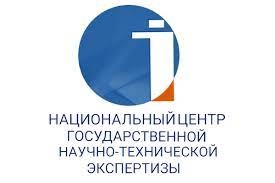ISSUES OF DEVELOPMENT OF THE KAZAKH LANGUAGE TRAINING CORPUS
https://doi.org/10.55491/2411-6076-2024-1-133-143
Abstract
The creation of national corpora is an urgent problem of the modern digital era. The creation of corpora in the world linguistics began in the middle of the last century. The experience of creating a corpus of the first English language served as a basis for creating corpora of other European languages, as well as Russian and Turkic languages. Research and teaching corpora, which were previously carried out manually, have achieved great results through the use of. The corpora provided the user with more materials, created new dictionaries and facilitated linguistic research. The number of corpus users increased day by day. Such needs favored the creation of corpora depending on the purpose of the user. For historians or researchers of historical linguistics – historical corpus, for translators and language learners – parallel corpus, for researchers of speech peculiarities and development of speech culture - there was a need to create oral corpora. At the same time, there is an urgent need to create educational corpuses – the only tool for digitalization of education. An educational corpus is an information and corpus base for language learners. The article gives an overview of the world experience in the development of educational corpora. The questions of what texts are contained in the text base of English, Russian language learning corpora, what linguistic information is provided to linguists, etc. are studied. The necessary prerequisites for thedevelopment of the Kazakh language training course being developed at the A. Baitursynov Institute of Linguistics will also be determined. Metadata and linguistic markups aimed at teaching/learning the language, ways of adapting reference tools to Kazakh language acquisition by language learners, computer-software methods are considered.
About the Authors
A. A. ZhanabekovaKazakhstan
Almaty
M. S. Zholshayeva
Kazakhstan
Almaty
A. Zh. Mukatayeva
Kazakhstan
Almaty
G. B. Tlegenova
Kazakhstan
Almaty
References
1. Granger S. (1990) (ed). Learner English on computer. – London: Addison Wesley Longman. – 1990. – 250 p. (in English)
2. Granger S. (1998) The computer learner Corpus: a versatile new source of data for SLA research. – Learner English on Computer. – L., 1998. – 16 p. (in English)
3. Dobrushina N. R., Levinzon A. I. (2006) Informacıonnıe tehnologıı v gumanıtarnom obrazovanıı: Nacıonal'nyı korpys rysskogo ıazyka. – Voprosy obrazovanıa. – 2006. – № 4. – S. 163-179. [Information Technologies in Humanitarian Education: National Corpus of the Russian Language. – Education issues. – 2006. – № 4. – S. 163–179.] (in Russian)
4. Jūbanov A. (2008) Kömpüterlik lıngvıstıkağa kirispe. – Almaty: Arys, 2008. – 640 b. [Introduction to computational linguistics. – Almaty: Arys, 2008. – 640 p.] (in Kazakh)
5. Jūbanov A.Q. (2016). Korpystyq lıngvıstıka. – Almaty: «Qazaq tili» baspasy, 2016. – 336 b. [Zhubanov A. Q. (2016). Corpus linguistics. – Almaty: «Qazaq tili», 2016. – 336 p.] (in Kazakh)
6. Mal'ceva M.S. (2011) Ychebnyı korpys kak baza dlıa lıngvısıcheskogo ı lıngvodıdaktıcheskogo analıza v ramkah metodıkı prepodovanıa ınostrannyh ıazykov». – Socıal'no-ekonomıcheskıe ıavlenıa I processy, № 9 (031). – 2011. – S. 209- 212 [Teaching corpus as a base for linguistic and linguodidactic analysis within the framework of foreign language teaching methodology. Socio-economic phenomena and processes. – № 9 (031). – 2011. – P. 209-212] (in Russian)
7. Nacıonal'nyı korpys rysskogo ıazyka [National corpus of the Russian language] / https://ruscorpora.ru/ (in Russian)
8. Sosnina E.P. (2017) K analızy lıngvıstıcheskıh oshıbok uchashhıhsıa na baze uchebnogo korpysa tekstov. – 2017. – S. 39-44. [Toward analyzing learners' linguistic errors based on a training corpus of texts. – 2017. – S. 39-44] (in Russian)
9. Hinkel E. (2002). Second language writers’ text. – Mahwah, NJ, 2002. – 392 p. (in English)
10. https://cyberleninka.ru/article/n/uchebnyy-korpus-learner-corpus-kak-baza-dlya-lingvisticheskogo-i-lingvodidakticheskogo-analiza-v-ramkah-metodiki-prepodavaniya/viewer (in Russian)
11. Shmeleva T.V. Zadachnık korpysa // Nacional'nyı korpys rysskogo ıazyka ı problemy gumanıtarnogo obrazovanıa / pod red. N.R. Dobrushınoı. – M., 2007. – S. 25-34. [Shmeleva T.V. Corpus taskbook // The National Corpus of the Russian Language and problems of humanitarian education / edited by N.R. Dobrushina. – M., 2007. – P. 25-34.] (in Russian)
12.
Review
For citations:
Zhanabekova A.A., Zholshayeva M.S., Mukatayeva A.Zh., Tlegenova G.B. ISSUES OF DEVELOPMENT OF THE KAZAKH LANGUAGE TRAINING CORPUS. Tiltanym. 2024;(1):133-143. (In Kazakh) https://doi.org/10.55491/2411-6076-2024-1-133-143















